The seafood industry desperately needs new research discoveries to enhance seafood safety and quality, and resolve issues and challenges. Dr. Liu has been dedicated to developing effective post-harvest technology that may be adopted by the seafood industry to enhance seafood safety and quality.
Research Projects
High Pressure Processing (HPP) Technology for Crabmeat Shelf-Life Extension
High hydrostatic pressure processing (HPP) is a non-thermal technology that subjects food in sealed containers to high pressure ranging from 15000 to 87000 PSI using a liquid (in this case, water) as the pressure transfer medium. Food is placed in sealed containers and loaded into the chamber which is then pressurized up to 87000 PSI for 3 minutes. The pressure is then released and the process is complete. The major advantage of HPP is that it reduces bacterial growth and extends the shelf life without affecting the taste or using any additives.
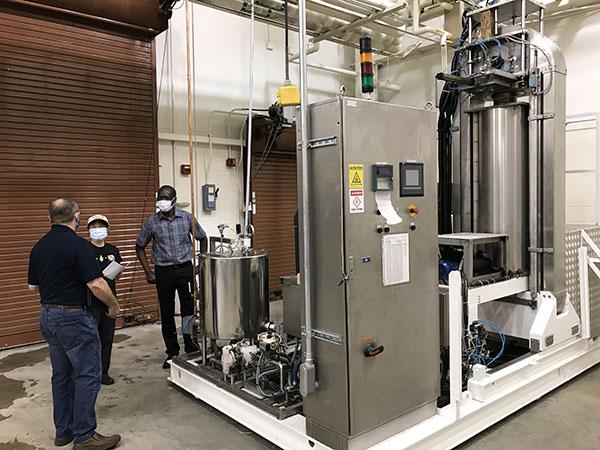
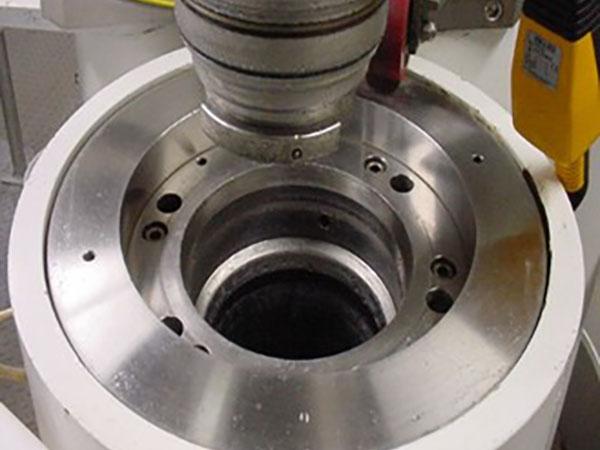
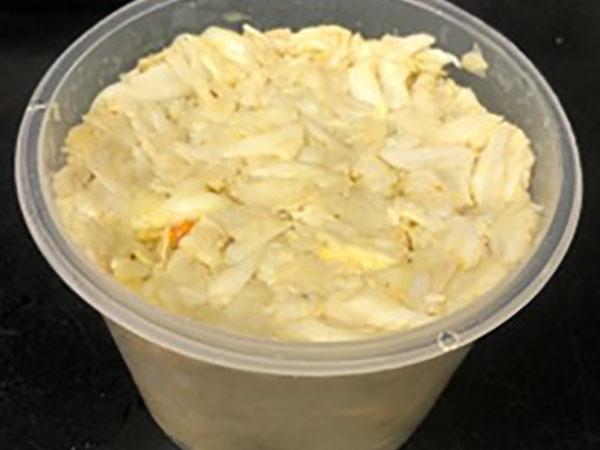
The US blue crab meat industry is facing tremendous challenges including strong competition from imported products. In order to help protect our domestic industry from predatory competition from foreign processors, Dr. Liu is leading a NOAA S-K Grant funded project (Federal Award Number: NA20NMF4270157) to address an urgent need within the domestic blue crab industry. The overall goal of this project is to validate the HPP technology for enhancing the microbiological quality and shelf life of domestic blue crab meat, and to establish and communicate marketing strategies the industry can execute, enabling them to stay current and competitive.
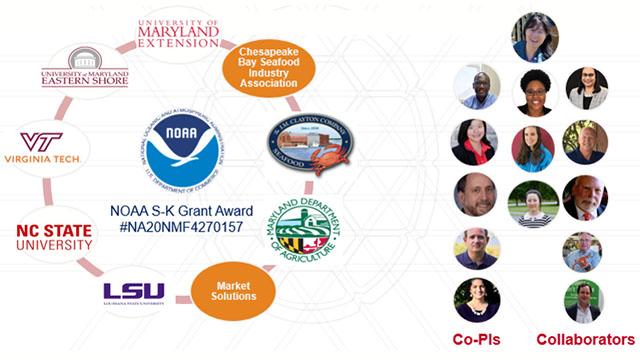
Additional partners include:
•Berry Global: Donated all containers/lids
•Multivac: Donated 10K OTR film for sealing the containers
•Maryland Packaging: Provided HPP service
The Atlantic blue crab processing industry, composed of small and mostly rural independent businesses, has significant culinary and economic importance in the United States – particularly in Maryland, Virginia, North Carolina, and Louisiana. This industry, though, is struggling to survive against lower-priced crabmeat imports. Since the mid-1990s, the number of crab-picking companies in Maryland has decreased from 50 to 20, and in North Carolina, the number of crab processors has dwindled from 45 to less than 10 since 2000. The same situation is occurring in Virginia and Louisiana.
Domestic blue crabmeat is sold either fresh-picked in plastic snap-lid cups or heat pasteurized in metal or plastic cans. Fresh blue crabmeat is by far the more popular, but its refrigerated shelf life or keeping quality is short – about seven to ten days. Researchers at University of Maryland Extension and University of Maryland Eastern Shore, in collaboration with NC State University, Louisiana State University and Virginia Tech University, are testing a non-thermal food and beverage preservation method called high pressure processing (HPP) to enhance the keeping quality of fresh blue crabmeat, while preserving its desirable sensory and nutritional qualities. Currently the food industry uses this technology to protect the safety and extend the keeping quality of oysters, fish, meat, milk, jams, and fruit juices.
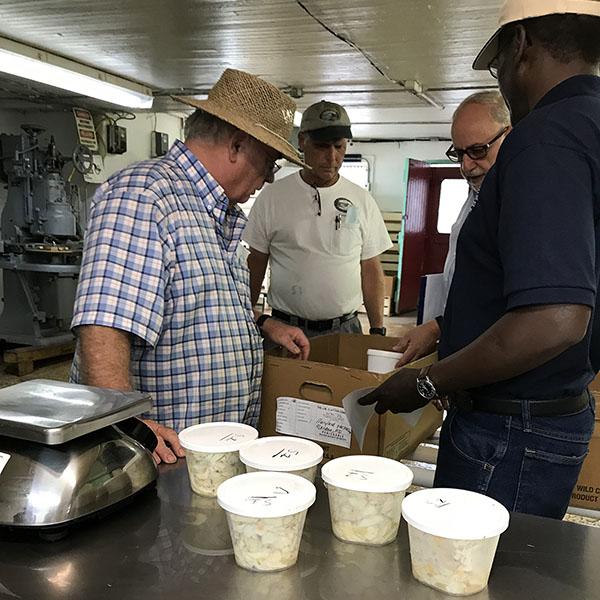
Our studies have shown that the shelf life of control samples (non-HPP crabmeat) is about 7-10 days, while HPP products could last beyond 3 weeks without significant changes in sensory characteristics (i.e., taste, texture and flavor). Market research shows a shelf life of up to three weeks would give our domestic crabmeat businesses a competitive edge over foreign crabmeat manufacturers.
For a more in-depth look at our research, read our article, Pilot Scale Assessment of High-Pressure Processing (HPP) to Enhance Microbiological Quality and Shelf Life of Fresh Ready-to-Eat (RTE) Blue Crab Meat, published in the journal Micoorganisms December 2023.